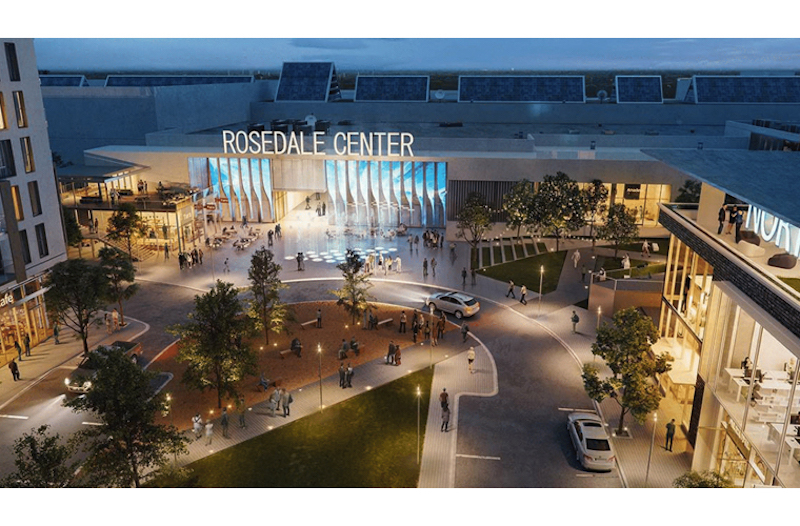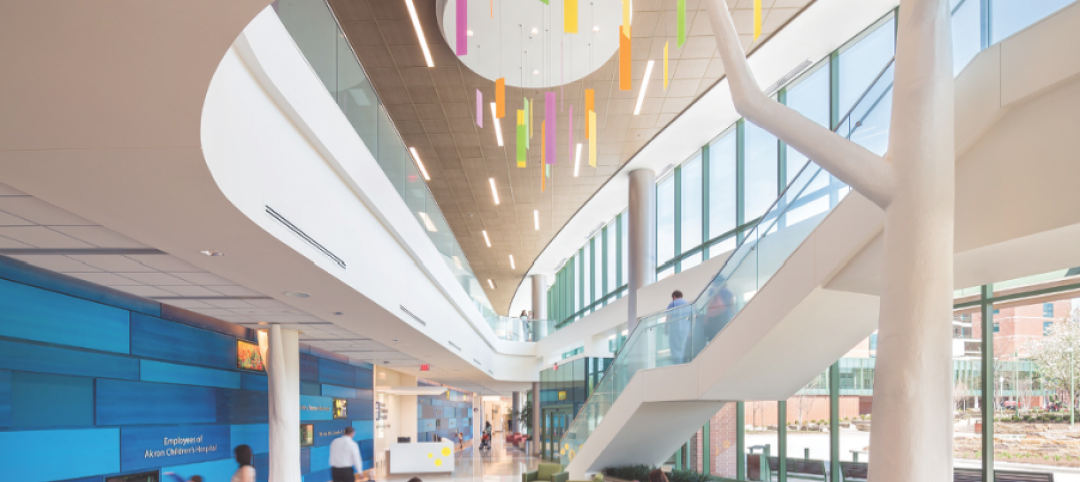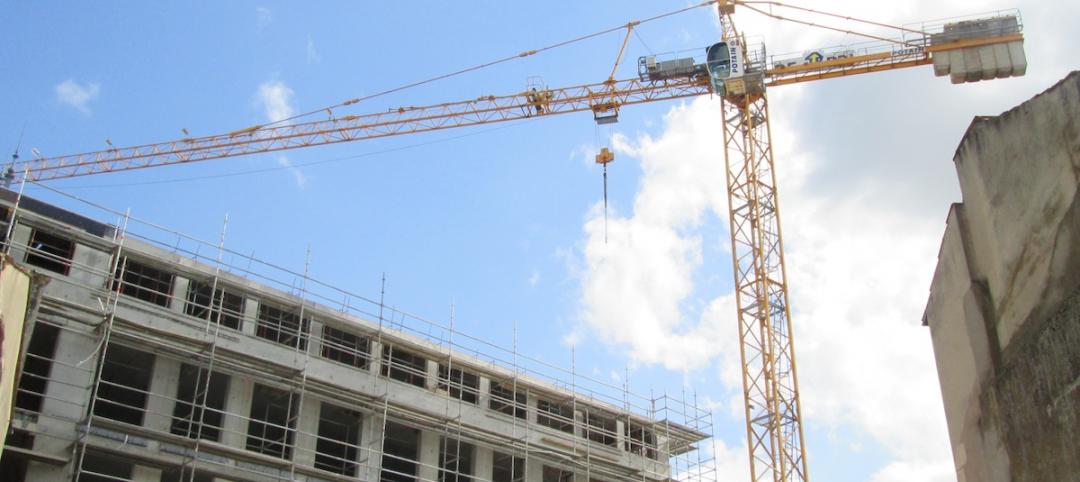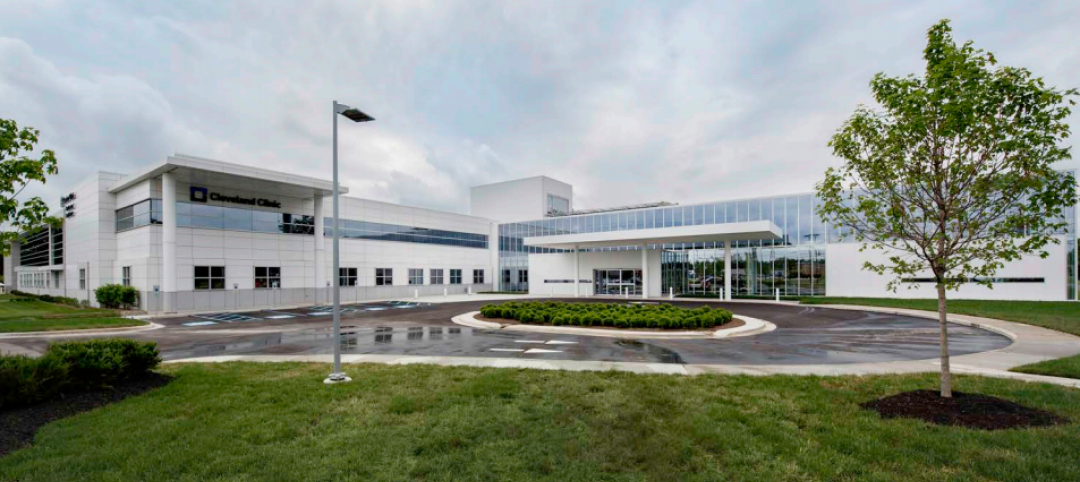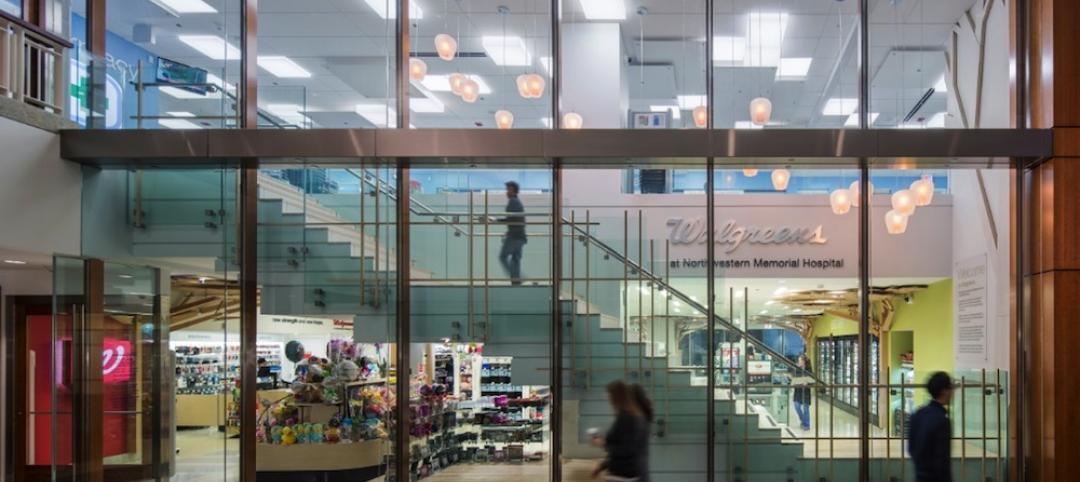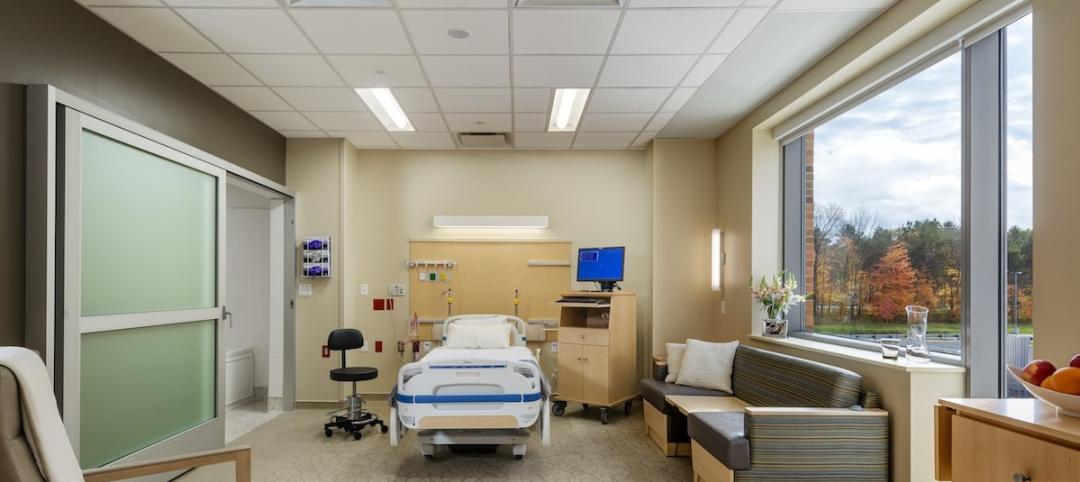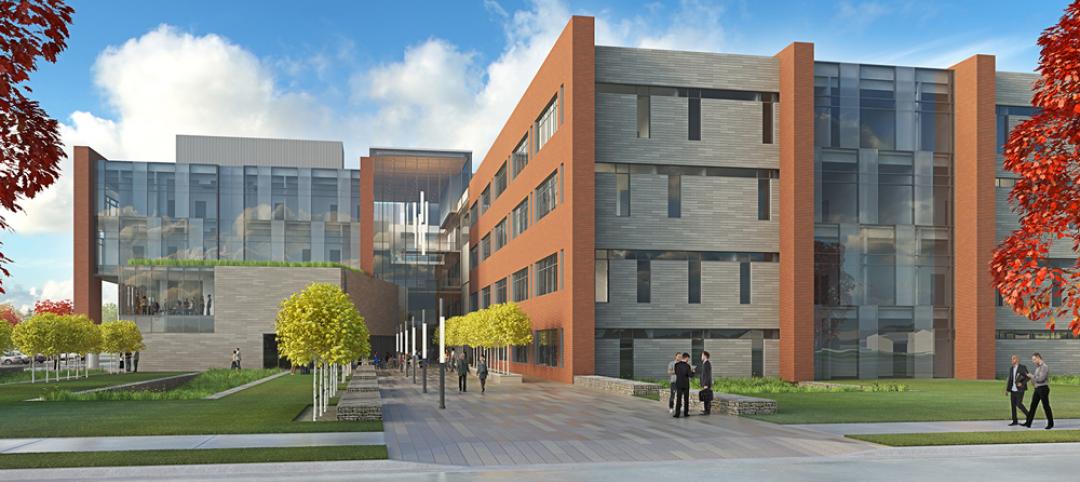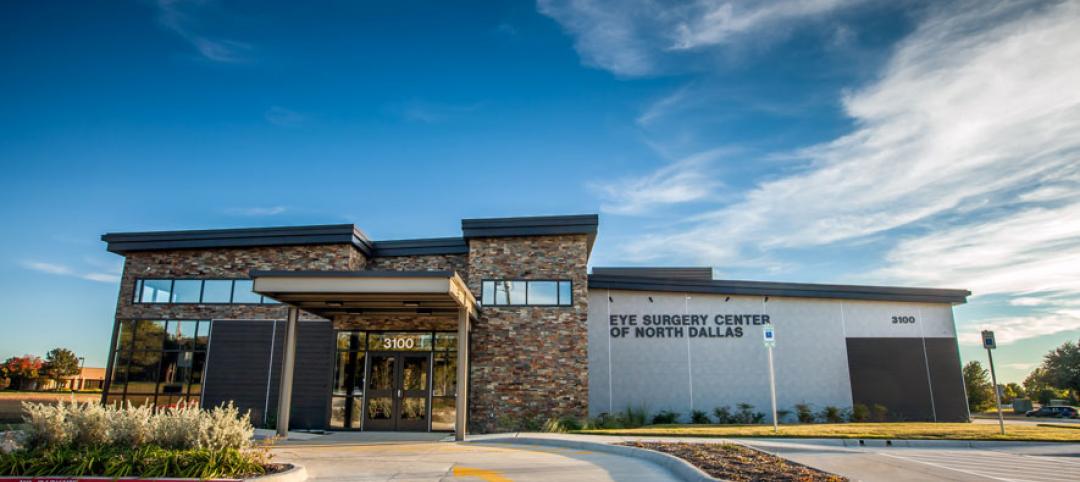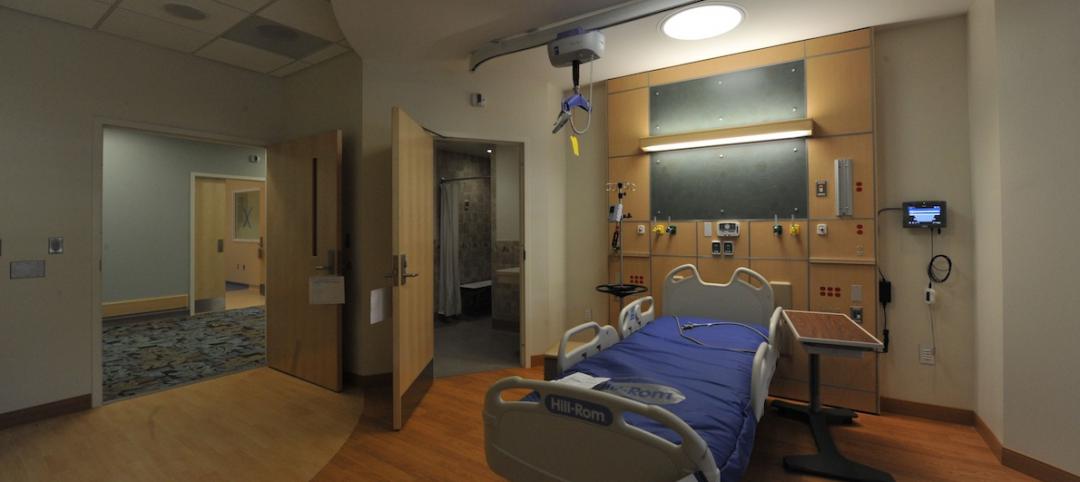The 1.2 million-sf shopping mall Rosedale Center in Roseville, Minn., yesterday disclosed its plans for a $100 million-plus expansion that will add a hotel, grocery, multifamily housing, fitness centers, restaurants, coworking spaces, more retail, and a medical office building.
Within the $400 billion global market for healthcare construction, two-fifths of all new retail transactions are for medical offices, compared to 2% a decade ago, according to recent AIA estimates. The number of medical centers in retail space—which Accenture put at 2,800 in 2017, compared to 351 in 2006—could nearly double by 2022, according to JLL projections.
As more developers, landowners, and retail strip owners look for ways to bring a medical facility to their properties, “nontraditional retail spaces for healthcare services are expected to continue to rise in popularity,” predicts JLL in its 2019 research report “Retail and the New Healthcare Consumer.”
Medical office buildings reflect the 'Amazon effect'
That medical offices are finding their way into empty retail space partly reflects the “Amazon effect” that has made online ordering a prevalent mode of shopping and has left bricks-and-mortar vacancies in its wake.
“Healthcare is seeking out locations that are convenient and accessible to their patients,” explains Steve Barry, president of Rendina Healthcare Real Estate, a developer based in Jupiter, Fla. “Retail often has great visibility, great access to traffic count, and plenty of parking.”
Rendina has been exploring this trend for a while now, he says. A few years ago, the firm developed a project for Hilton Head Regional Healthcare in South Carolina that placed a 60,000-sf outpatient facility inside a vacated Publix supermarket with a shopping mall.
Rendina is currently in the process of developing a project that will create an 80,000-sf healthcare facility within a regional shopping mall that Barry says is repositioning itself as a lifestyle center that includes entertainment and grocery venues. Barry couldn’t identify the location or client for this project, but says its construction should start next year.
Retrofitting a retail store for conversion to a medical office depends on the level of care being provided, which may have structural and air ventilation requirements, says Barry.
From a land-pricing and operational cost standpoint, moving healthcare into retail could actually be more expensive than, say, opening a stand-alone facility, because retail stores, says Barry, are generally in higher-density (and higher-rent) locations.
What’s more important, however, is attracting the right kinds of customers to these buildings. “Patients are exerting far more control over where they go for care,” he says.
Barry foresees this trend having some runway left. He expects to see new variations and models, too: for example, his firm is working on developing a hybrid urgent-emergency care facility under one roof, so that patients could access the appropriate care and be charged appropriately for it. Medical offices, says Barry, “would be part of this rehab mix.”
He believes that, despite technology advancements that allow patients to access care from their homes or phones, “healthcare in general will always have a need for space.”
Related Stories
Giants 400 | Aug 6, 2015
HEALTHCARE AEC GIANTS: Hospital and medical office construction facing a slow but steady recovery
Construction of hospitals and medical offices is expected to shake off its lethargy in 2015 and recover modestly over the next several years, according to BD+C's 2015 Giants 300 report.
Contractors | Jul 29, 2015
Consensus Construction Forecast: Double-digit growth expected for commercial sector in 2015, 2016
Despite the adverse weather conditions that curtailed design and construction activity in the first quarter of the year, the overall construction market has performed extremely well to date, according to AIA's latest Consensus Construction Forecast.
Healthcare Facilities | Jul 23, 2015
David Adjaye unveils design for pediatric cancer treatment center in Rwanda
The metallic, geometric façade is based on the region’s traditional Imigongo art.
Healthcare Facilities | Jul 22, 2015
Best of healthcare design: 8 projects win AIA National Healthcare Design Awards
Montalba Architects' prototype mobile dental unit and Westlake Reed Leskosky's modern addition to the Cleveland Clinic Brunswick Family Health Center highlight the winning projects.
Healthcare Facilities | Jul 8, 2015
From Subway to Walgreens, healthcare campuses embrace retail chains in the name of patient convenience
Most retail in healthcare discussions today are focused on integrating ambulatory care into traditional retail settings. Another trend that is not as well noted is the migration of retailers onto acute care campuses, writes CBRE Healthcare's Craig Beam.
Healthcare Facilities | Jul 6, 2015
The main noisemakers in healthcare facilities: behavior and technology
Over the past few decades, numerous research studies have concluded that noise in hospitals can have a deleterious effect on patient care and recovery.
University Buildings | Jun 29, 2015
Ensuring today’s medical education facilities fit tomorrow’s healthcare
Through thought-leading design, medical schools have the unique opportunity to meet the needs of today’s medical students and more fully prepare them for their future healthcare careers. Perkins+Will’s Heidi Costello offers five key design factors to improve and influence medical education.
Sponsored | Healthcare Facilities | Jun 23, 2015
Texas eye surgery center captures attention in commercial neighborhood
The team wanted to build an eye surgery center in an already established area but provide something clean and fresh compared to neighboring buildings.
Healthcare Facilities | Jun 16, 2015
Heatherwick’s design for cancer center branch has ‘healing power’
The architect describes it as “a collection of stepped planter elements”
Healthcare Facilities | May 27, 2015
Roadmap for creating an effective sustainability program in healthcare environments
With a constant drive for operational efficiencies and reduction of costs under an outcome-based healthcare environment, there are increasing pressures to ensure that sustainability initiatives are not only cost effective, but socially and environmentally responsible. CBRE's Dyann Hamilton offers tips on establishing a strong program.


